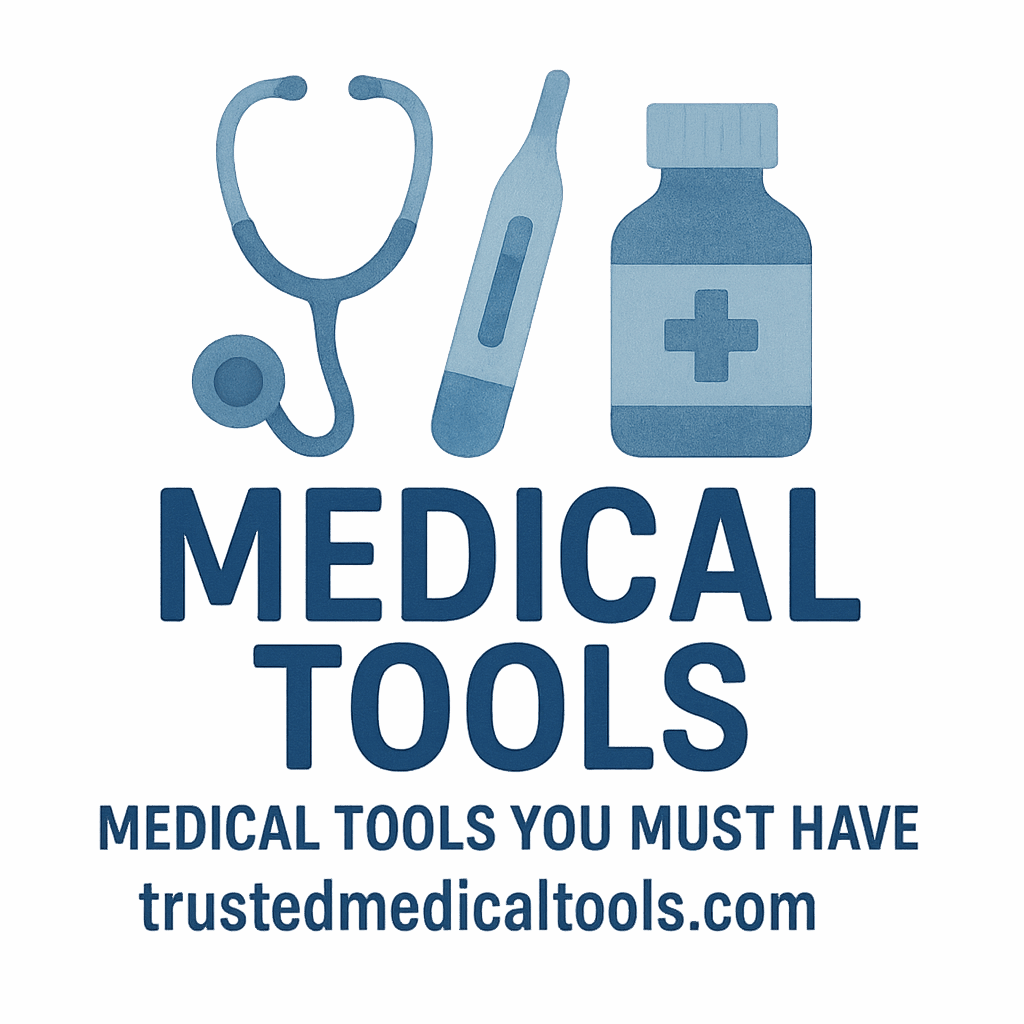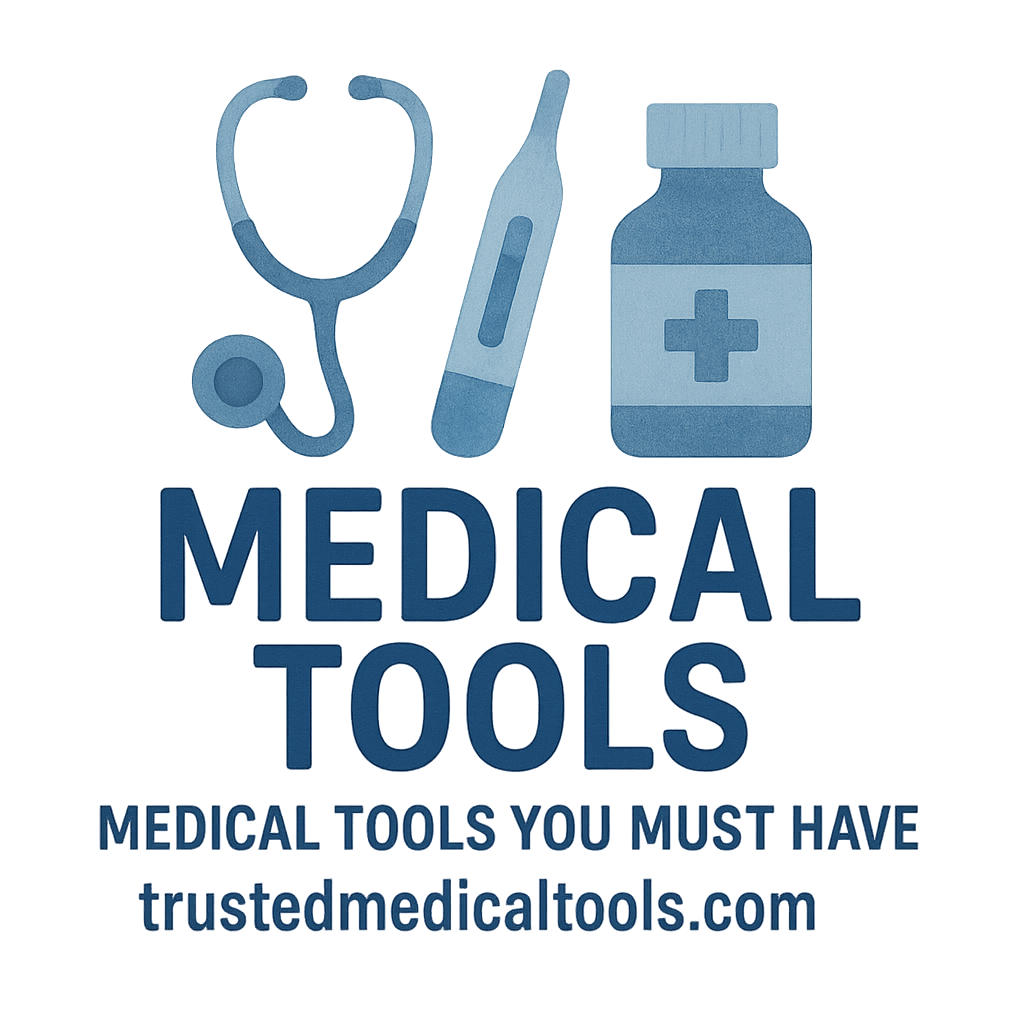Introduction
When it comes to your family’s health, having the right medical tools at home is crucial. Accidents, illnesses, and emergencies can happen when you least expect them, and being prepared can make all the difference. With the right tools, you can provide immediate care, monitor health conditions, and be prepared for a variety of situations. However, choosing the right medical tools for your home can feel overwhelming, especially with the variety of options available. So, how do you make sure you’re selecting the best tools? Let’s dive into some helpful tips that will guide you through the process!
Tip 1: Understand Your Family’s Health Needs
Before you start shopping for medical tools, it’s essential to assess the health needs of your family. Are there chronic health conditions that require regular monitoring? Do you have young children or elderly relatives who may need different tools? Understanding these needs will help you determine what tools are necessary for your home.
For instance, if someone in your family suffers from high blood pressure, a reliable blood pressure monitor should be a priority. Similarly, if you have elderly relatives, you might need tools like a thermometer, pulse oximeter, or even fall detectors.
Explore more family health tools
Tip 2: Choose Doctor-Approved Medical Tools
When selecting medical tools, make sure they are doctor-approved. This ensures that the products are reliable, safe, and effective. Doctor-approved tools often meet stringent safety standards and are recommended for both personal and professional use.
You can find doctor-approved medical tools from reputable online retailers, local pharmacies, or medical supply stores. Websites like Trusted Medical Tools offer a variety of doctor-approved tools for home use.
Tip 3: Prioritize Safety and Quality
The most important thing when choosing medical tools is safety. Medical tools are designed to help you monitor or treat health conditions, and using low-quality, unverified products can have serious consequences. Always opt for tools that are tested for safety, durability, and reliability.
You don’t want to risk using faulty safety gear or inaccurate monitoring devices. Look for certifications like FDA approval, CE marking, and other industry standards that ensure the product is up to par. If you’re unsure about a product, do some research or consult with a medical professional.
Browse high-quality health equipment

Tip 4: Invest in Monitoring Devices
Monitoring your health at home can prevent complications and give you valuable insights into your well-being. Some essential monitoring devices to consider include:
- Blood Pressure Monitors: Great for individuals with hypertension or at risk for high blood pressure.
- Thermometers: Accurate readings for fever management.
- Glucometers: Crucial for individuals with diabetes to track their blood sugar levels.
Having these devices in your home allows you to keep tabs on vital health metrics and take action if something goes wrong.
Explore monitoring devices for your home
Tip 5: Build a First-Aid Kit with Essential Tools
One of the first things every home should have is a well-stocked first-aid kit. This kit is essential for addressing minor injuries, burns, cuts, or other health emergencies until medical help arrives. A good first-aid kit should include:
- Band-aids, gauze pads, and adhesive tape
- Antiseptic wipes and ointments
- Tweezers and scissors
- A digital thermometer
- A basic first-aid manual
Check out first-aid box essentials
Tip 6: Focus on Easy-to-Use Tools
When you’re shopping for medical tools, make sure they are easy to use. Whether it’s a thermometer, a blood pressure cuff, or a pulse oximeter, the tool should be simple to operate, especially if you or a family member might have difficulty using it.
For example, many modern thermometers are digital and offer one-touch operation. Similarly, an easy-to-use blood pressure monitor can take readings quickly without requiring much effort from the user.
Find easy-to-use medical tools
Tip 7: Consider Long-Term Storage and Durability
Medical tools need to be durable and stored properly to ensure they work when you need them. Some tools, like thermometers or blood pressure monitors, may need to be stored in specific conditions (e.g., temperature-controlled environments). Additionally, long-term durability means you won’t have to replace your tools as often.
Learn how to care for your medical tools
Tip 8: Go for Multi-Use Medical Tools
Instead of buying single-purpose tools, consider multi-use medical tools that can serve several functions. For example, a digital thermometer can measure both oral and ear temperatures, or a multi-functional medical kit can handle different types of emergencies, from minor cuts to burns.
This not only saves money but also reduces clutter in your home. Plus, it’s always helpful to have versatile tools that can adapt to various situations.
Shop for multi-use medical tools
Tip 9: Look for Affordable but Reliable Options
While it’s important not to compromise on quality, there are many affordable medical tools available that don’t sacrifice reliability. Look for brands or tools that offer a balance between price and performance.
Keep an eye out for deals or discounts on trusted platforms like Trusted Medical Tools, which offers budget-friendly options without cutting corners on safety.
Tip 10: Ensure Easy Accessibility
In the event of an emergency, you need your medical tools to be easily accessible. Store your tools in a dedicated first-aid box, medical drawer, or cabinet that is clearly labeled and easy to reach. Make sure everyone in your home knows where the tools are located.
Proper organization ensures that you won’t waste valuable time searching for the right tools during an emergency.
Check out easy-access health equipment storage ideas
Conclusion
Choosing the right medical tools for your home is an investment in your family’s health and well-being. By understanding your family’s health needs, focusing on quality and safety, and keeping accessibility in mind, you can ensure you’re prepared for emergencies and everyday health management.
Remember to prioritize doctor-approved tools, go for multi-use items, and choose affordable options that meet safety standards. A well-stocked first-aid kit, monitoring devices, and easy-to-use tools will help you stay on top of your health and provide immediate care when needed.
FAQs
What are the most essential medical tools for home use?
Essential tools include a first-aid kit, blood pressure monitor, thermometer, and a glucometer if needed.
How do I know if a medical tool is safe to use?
Look for doctor-approved products, certifications like FDA approval, and check for any safety guidelines.
Can I rely on over-the-counter medical tools?
Yes, but ensure they are from reputable brands and meet safety standards. Always check reviews and consult with a healthcare professional if unsure.
Where can I buy doctor-approved medical tools?
You can purchase them from trusted retailers, local pharmacies, or online medical supply stores like Trusted Medical Tools.
How can I ensure my medical tools last long?
Store them properly, follow the manufacturer’s care instructions, and regularly maintain and check for any wear and tear.
What should I look for when purchasing a first-aid kit?
Ensure it contains basic items like bandages, antiseptic wipes, scissors, a thermometer, and a first-aid manual.
Are monitoring devices necessary for home use?
Yes, they help you track vital health metrics and stay on top of conditions like blood pressure, glucose levels, and more.


